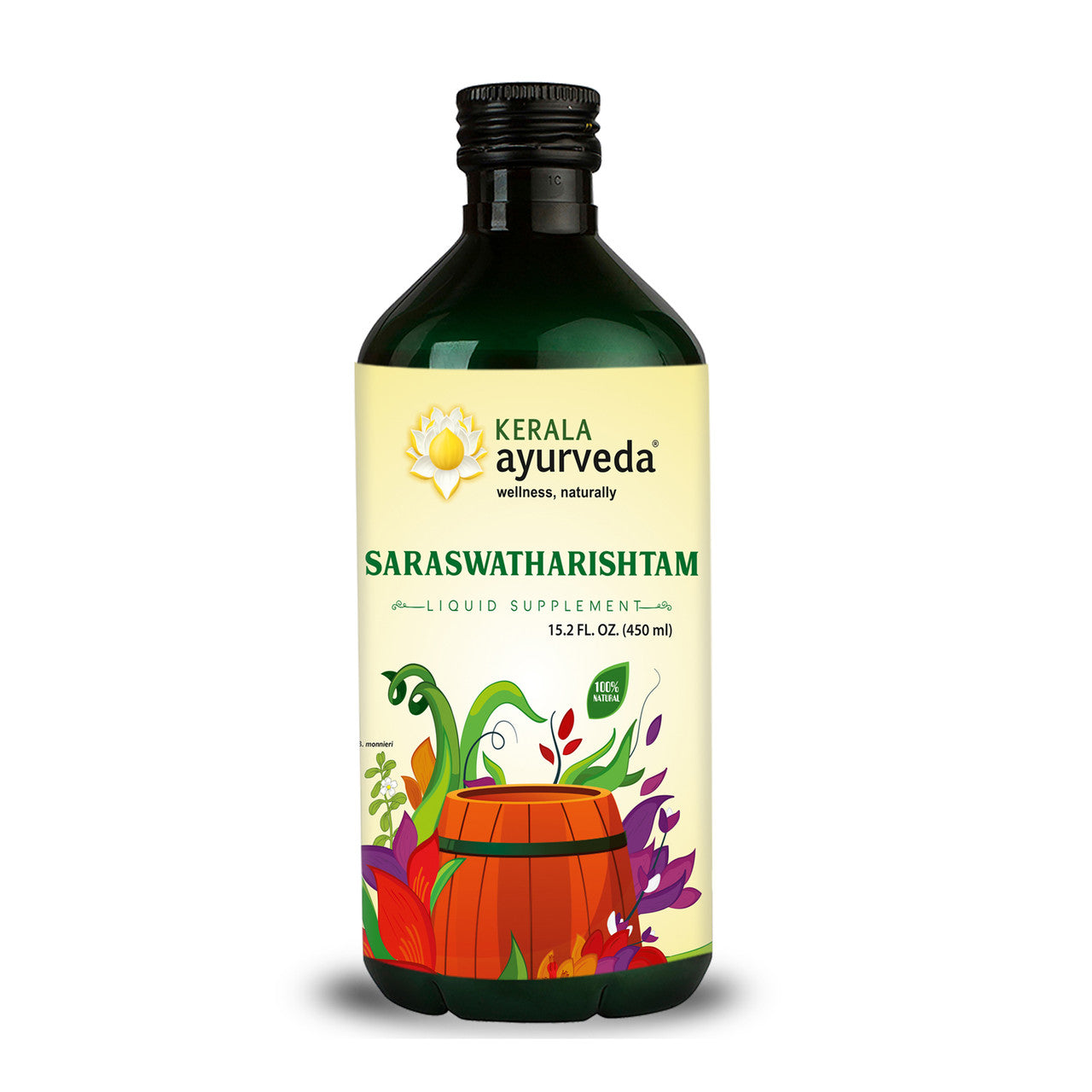In today's fast-paced world, stress has become an unavoidable part of our daily lives. While some stress can be beneficial in motivating us to meet challenges, chronic stress takes a significant toll on our overall well-being. Ayurveda, the ancient science of life and healing, offers a holistic perspective on understanding stress and provides effective strategies to manage it naturally.

What is Stress According to Ayurveda?
Ayurveda explains stress as a mental imbalance primarily caused by disturbances in the mind-related Doshas – Rajas and Tamas. In Ayurveda, Doshas are fundamental energetic forces or biological humors that govern physiological and psychological functions in the body. However, any disorder, including mental disorders, also involves the physical Doshas – Vata, Pitta, and Kapha. The main Doshas affected by stress are Vata and Pitta. Excessive physical stress disturbs Vata dosha, while psychological stress factors like anxiety and grief also contribute to Vata imbalance. Pitta dosha is predominantly affected by emotions of anger.
Stress isn't simply a modern concept; the ancient Ayurvedic text Charaka Samhita refers to it as Udvega, which is identified as a causative factor for various physical symptoms including fever, diarrhea, and emaciation. In fact, stress avoidance is specifically mentioned in the Charaka Samhita that states "in order to protect one's life, one should always avoid over-exerting themselves."
From an Ayurvedic perspective, stress manifests differently for each individual. What creates stress in one person may be pleasurable for another – consider how a race car driver might enjoy high speeds that would terrify an average passenger. This subjective human nature makes stress challenging to define universally.
Types of Stress
Ayurveda recognizes several types of stress:
- Acute stress: Our bodies are designed to handle short-term stressful situations efficiently. When life-threatening circumstances arise, our body's mechanisms activate to face the situation. In these moments, there's no time for thinking, planning, or worrying—our bodies simply respond.
- Chronic stress: This ongoing stress takes a toll on the entire personality, like a "hanging sword" over one's head. It may be caused by serious illnesses, unexpected death of loved ones, severe financial loss, or damaged reputation. Chronic stress is particularly harmful as it bathes our tissues in stress hormones almost continuously.
- Individual stress: Arising from personal circumstances like job loss, unemployment, heartbreak, unhappy marriage, or legal troubles.
- Social stress: Created by social factors such as social isolation, discrimination, or difficulty in relationships.
- Environmental stress: Caused by natural calamities like earthquakes, floods, famines, war, and similar catastrophic events.
-
Organizational/Industrial stress: Stress arising from workplace factors like strikes, layoffs, mergers and acquisitions, retrenchment, hierarchy issues, and workplace harassment.

Physical and Mental Symptoms of Stress
When stress becomes excessive or prolonged, it manifests in both physical and mental symptoms:
Physical Symptoms:
Chronic stress negatively affects multiple body systems, including:
- Endocrine system: Under stress, the entire endocrine system becomes unbalanced. Hormones like adrenaline and cortisol are released into the bloodstream, creating stress on the vascular system and heart.
- Digestive system: Disrupted digestion, hyperacidity, irritable bowel syndrome, peptic ulcers, loss of appetite, and changes in appetite
- Cardiovascular system: Hypertension, increased heart rate, fluctuating blood pressure, and heart disease risk
- Musculoskeletal system: Muscle tension, spasms, aches, and pain Immune system: Weakened defenses, reduced immunity, and increased susceptibility to frequent infections
- Sleep disturbances: Insomnia and restless sleep
- Weight fluctuations: Unintended weight gain or loss
Cognitive symptoms:
Chronic stress symptoms manifest both mentally and emotionally:
- memory loss, inability to concentrate, poor judgment
- Anxiety, excessive worrying, racing thoughts
- Irritability, frustration, and short temper
- Constant irritability and grimness
- Depression and sadness
- Feeling overwhelmed
- Mental fatigue and brain fog
- Confining oneself to loneliness
- Negative thoughts, including suicidal thoughts in severe cases
- Lack of motivation and social withdrawal
The Ayurvedic Approach to Managing Stress
Ayurveda offers a comprehensive framework for managing stress through three main approaches: Daivavyapasraya (divine therapy), Yuktivyapasraya (herbal and dietary regimens), and Sattvavajaya chikitsa (psychotherapy and codes of conduct). Let's explore these approaches in more detail:

Diet Recommendations:
In Ayurveda, food is considered medicine. A healthy diet rich in fresh, organic produce, whole grains, and vegetarian proteins nourishes your body and helps combat stress. Fruits and vegetables contain antioxidants that counteract the free-radical damage caused by stress.
Different dietary approaches are recommended based on your dominant dosha:
- Vata: Favor warm, nourishing, and grounding foods. Avoid excessive raw foods and cold drinks. Warm milk with a pinch of nutmeg can be soothing before bedtime.
- Pitta: Avoid spicy, salty, or sour foods, which increase pitta in the digestive system. Limit stimulants like caffeine and alcohol. Cool, sweet foods like coconut, cucumber, and sweet fruits can be balancing.
- Kapha: Avoid cold and heavy comfort foods during stressful times, especially cheese, wheat, and sugary foods. Choose warm soups, stews, and foods with warming spices to maintain energy and prevent sluggishness.

Lifestyle Practices:
Establishing a consistent daily routine is fundamental to stress management in Ayurveda. Simple practices include:
- Wake up early: Before sunrise to align with natural rhythms. In Ayurveda, the Brahmi Muhurtha time is approximately one hour before sunrise and is considered the best time to wake up.
- Morning self-care: Cleanse, brush teeth, scrape tongue, and drink water
- Self-massage (Abhyanga): Apply warm oil to relieve tension, especially on hands, feet, and neck, which are major stress areas
- Yoga and gentle movement: Practice asanas and Surya Namaskara (Sun Salutations)
- Breathwork (Pranayama): Practice deep breathing to calm the nervous system
- Meditation: Implement even brief periods of meditation daily. Even one minute per day can begin to bring benefits.

Additional lifestyle recommendations include:
- Slow down: Make a conscious effort to move at a more balanced pace, especially if you're accustomed to a hectic lifestyle
- Learn to say "No": Saying yes to everything creates unrealistic expectations and increases stress
- Quality self-care: Engage in activities that promote relaxation and stability
- Connect with nature: Spend time outdoors to ground yourself
- Adequate rest: Ensure sufficient sleep by eating lightly at dinner and at least three hours before bed
- Mindful communication: Express feelings rather than bottling them up
- Share your feelings: Find trusted individuals in whom you can confide and discuss your concerns
- Focus on the positive: Being truthful in your behavior and efforts brings more courage and peace of mind

Ayurvedic Herbal Remedies for Stress
Ayurveda offers several powerful herbal formulations that specifically target stress and its effects. The ancient texts mention numerous Medhya dravyas (mind-enhancing substances) including Brahmi, Vacha, Shankapushpi, Ashwagandha, and Gota Kola. Among the many Ayurvedic formulations beneficial for stress, three particularly effective preparations are:
Brahmi Ghee (Ghritham) - Herb Infused Ghee for Focus and Memory
Brahmi Ghee is an herbal clarified butter preparation primarily used for supporting conditions affecting the central nervous system. Its main ingredient, Brahmi (Bacopa monnieri), is considered one of the best Medhya Rasayana (nootropic) herbs in Ayurveda. Brahmi Ghee is a classical Ayurvedic formulation that is widely used in supporting psychiatric disorders and is especially valuable for improving memory-related functions. Ghee is used as the base because its lipophilic nature helps it to cross the blood-brain barrier.
Benefits for stress management:
- Helps reduce anxiety and calms the nervous system with its Vata-balancing properties
- Improves mental clarity and cognitive functions
- Supports depression, fatigue, and depression-induced body ache
- Helps with panic attacks and stress disorders
- Supports the body's natural ability to adapt to stress
- Enhances overall mental health and emotional well-being
- Promotes better memory and concentration
Kalyanaka Ghee (Ghritham) – Herb Infused Ghee for Mental and Emotional Support
Kalyanaka Ghrita is a classical Ayurvedic formulation traditionally used for supporting debility and impairment of intellectual activities. This herbal ghee contains multiple herbs with proven neuroprotective and cognitive-enhancing properties. The name "Kalyanaka" means "auspicious" or "beneficial," reflecting its positive effects on mental health. Like Brahmi Ghrita, Kalyanaka Ghrita uses ghee as a base to support the delivery of active ingredients across the blood-brain barrier.
Benefits for stress management:
- Balances all three doshas - Vata, Pitta, and Kapha
- Helps reduce anxiety and promote mental calmness
- Improves brain function and memory
- Provides antioxidant protection to neural tissues
- Supports cognitive development
- Helps alleviate symptoms of stress-induced insomnia
Saraswatharishtam
Saraswatarishtam is a fermented Ayurvedic preparation (arishta) used as an all-purpose anti-aging tonic suitable for all ages. It's particularly beneficial as a brain stimulating tonic that enhances memory and cognitive functions. The name is derived from Saraswati, the goddess of knowledge and wisdom in Hindu mythology. Unlike ghee-based preparations, Saraswatarishtam is a liquid preparation, making it a good alternative for those who may not tolerate ghee well or have digestive concerns.
Benefits for stress management:
- Supports brain function and mental alertness
- Improves memory and concentration
- Enhances learning capacity
- Promotes mental clarity and focus
- Useful for people with slightly lower digestion power
- Suitable alternative for those unable to use ghee preparations
- Brain stimulating effects that help overcome mental fatigue and sluggishness
How to Incorporate These Remedies
For optimal results, these Ayurvedic preparations should be taken under the guidance of a qualified Ayurvedic practitioner who can determine the appropriate dosage based on your individual constitution and condition. Generally:
- Brahmi Ghee is typically taken in doses of 1/4 to 1/2 teaspoon with warm water or milk.
- Kalyanaka Ghee is usually administered in similar amounts, customized according to individual needs.
- Saraswatharishtam is taken in small amounts (approximately 1-2 teaspoons) with an equal amount of warm water.

Panchakarma and Specialized Therapies
In addition to herbs and lifestyle changes, Ayurveda offers specialized therapies for deeper stress relief:
- Shirodhara: This deeply relaxing therapy involves pouring a continuous stream of warm herbal oil over the forehead, particularly on the area of the "third eye." This profoundly helps calm the nervous system and can be especially helpful for anxiety, insomnia, and mental tension.
- Shiro Abhyanga: A therapeutic head massage that helps relieve tension, promote circulation, and calm the mind.
- Nasya: Administration of herbal oils through the nasal passages, which helps balance Vata dosha and can be effective for stress and anxiety.
Ayurvedic Management of Stress
The ancient wisdom of Ayurveda provides a holistic framework for understanding and addressing stress in its many forms. Rather than just treating symptoms, Ayurveda seeks to restore balance to the body and mind through personalized approaches that consider your unique constitution and specific imbalances.
For optimal results, it's best to consult with a qualified Ayurvedic practitioner who can assess your individual needs and recommend the most appropriate combination of therapies, herbs, and lifestyle adjustments.
Taking the first step toward an Ayurvedic approach to stress management can open the door to a more balanced, peaceful way of living. By combining proper diet, daily routine, mindfulness practices, and appropriate herbal support under professional guidance, you can develop a sustainable plan for navigating life's challenges while maintaining your physical and mental well-being.
If you would like personalized guidance, consider scheduling an Ayurvedic Wellness Consultation for a tailored approach designed just for you. We would love to hear your story and help you find the right Ayurvedic solution.















